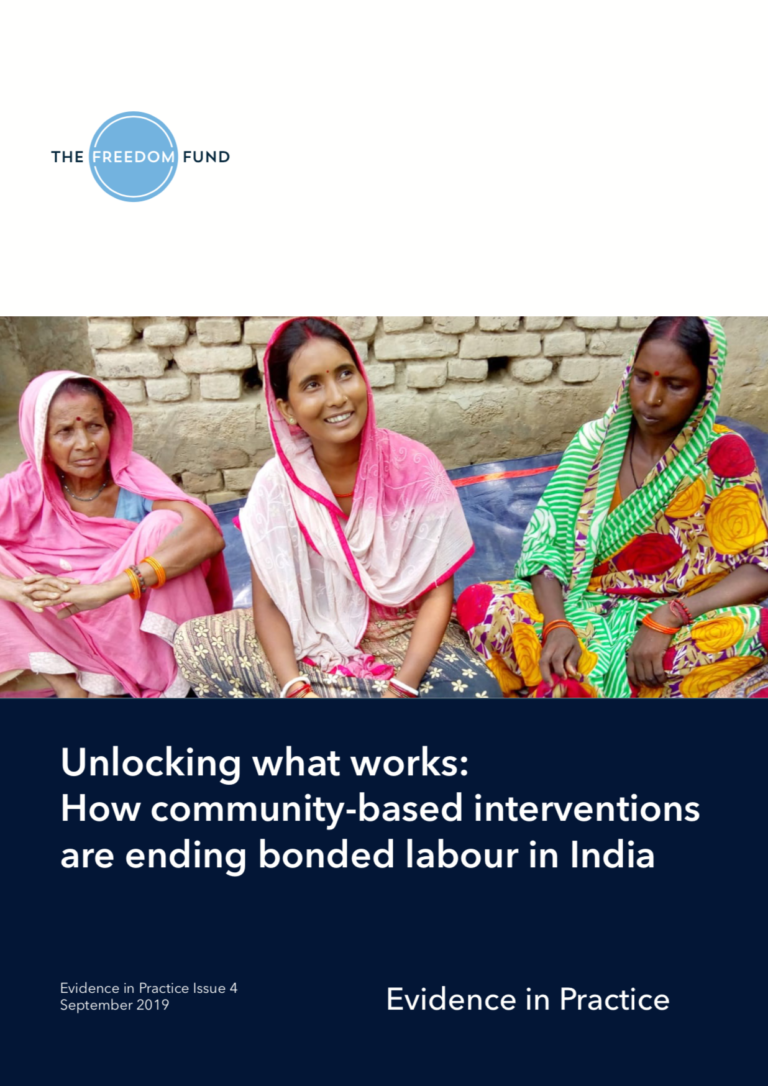New findings from external evaluations of the Freedom Fund’s hotspot programs by leading research organisations have validated our model of working with vulnerable communities. The headline findings from these evaluations are:
- Between 2015 and 2018, the prevalence of households in bonded labour in our 1,100 target villages fell steeply, on average, from 56% to 11% across our northern and southern India hotspot programs;
- This is equivalent to 125,000 fewer individuals in bonded labour across the two programs;
- The proportion of households in our target areas with a child in bonded labour fell from 13% to 1% in southern India, and from 12% to 3% in northern India;
- In the southern India hotspot, child marriage and school drop-outs fell by over half between 2016 and 2018;
- The state of Bihar in our northern India hotspot now tops the national league table on child rescue operations, having previously ranked low among states in tackling child labour.
These findings are documented in their paper, Unlocking what works: How community-based interventions are ending bonded labour in India, published today. The paper summarises the results of five evaluations of two of our India programs. Taken together, these evaluations affirm that the power to end modern slavery lies in frontline communities themselves. The Freedom Fund’s programs are having a direct impact in the communities our partners are working in, and they are successfully building on this community-level work to positively change wider policies and systems.

